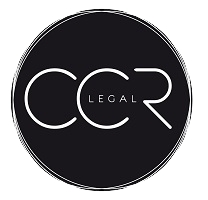If you are thinking about a new venture, expanding an existing business or entering a new market, one option you might consider is to buy an established business. There are advantages and disadvantages when buying an existing business compared with starting your own. Considering the pros and cons of each, and carrying out any due diligence beforehand to assess the value, risks, and potential of a target business will help you make an informed decision. An experienced lawyer can help you navigate the legal complexities.
Advantages and Disadvantages
Buying an established small business offers several advantages. First and foremost, you will usually inherit an existing customer base, which can provide immediate cash flow and revenue. This can save you the time and effort required to build a customer base from scratch. Additionally, an established business often has existing relationships with suppliers, distributors, and other stakeholders, providing you with a head start in identifying key resources and entering the market. Brand recognition and goodwill associated with an existing business can also help you establish credibility in the industry.
On the other hand, starting your own business allows for greater control and customisation. You can shape the business according to your vision and preferences without inheriting any existing issues or limitations. Starting from scratch also enables you to choose the location, design the infrastructure, and hire the team that aligns with your strategic objectives. However, building a new business requires substantial time and resources, and success is not guaranteed in the early stages.
Due Diligence when Buying a Small Business
For an existing business, due diligence typically refers to the comprehensive investigation and analysis of the target business to assess its value, risks, and potential for growth. It encompasses investigating the financial, legal, operational, and human resources of the proposed business.
Financial and Legal Due Diligence
Financial due diligence involves scrutinising the proposed business’s financial statements, tax records, cash flow, and debt obligations. This helps you evaluate the accuracy and reliability of the financial information provided by the seller, assess the business’s profitability and financial health, and identify any potential financial risks or liabilities.
Legal due diligence focuses on examining the legal documents, contracts, licences, permits, and regulatory compliance. It ensures that the business has clear title to its assets, that there are no legal disputes or pending litigation that may affect its operations, and that it complies with applicable laws and regulations.
Taking over existing agreements forms another aspect of the due diligence process. You will need to review contracts with customers, suppliers, landlords, and other key stakeholders to assess their terms, obligations, and potential risks or liabilities. This ensures that you are fully aware of the existing contractual relationships and can effectively manage them after the acquisition.
A lawyer can assist with various legal aspects of due diligence, for example, assessing the business’s intellectual property rights, reviewing contract terms and conditions, and investigating obligations under existing agreements that will be assigned to the new owner. Accountants can help with financial due diligence by analysing and assessing the accuracy of financial information and identifying potential financial risks or liabilities.
Operational Due Diligence
Operational due diligence involves assessing the business’s operational processes, systems, and infrastructure. You may need to evaluate its supply chain, production capabilities, technology, and any intellectual property rights. This helps you understand the efficiency and effectiveness of operations and identify any operational risks or inefficiencies.
Operational due diligence may also involve an evaluation of the business’s human resources. This might encompass reviewing employment contracts, assessing employee benefits and compensation packages, and understanding any potential labour issues or legal obligations. This helps assess the quality and suitability of the existing workforce and plan for any necessary changes or restructuring. A lawyer can provide guidance on employment matters, ensuring compliance with employment laws, and assist with the transfer of employees or restructuring, if necessary.
Conclusion
Regardless of whether you choose to buy an established business or start your own, due diligence is a crucial step in the process. Obtaining competent legal and financial advice can help entrepreneurs minimise risk and enable them to make informed decisions about their proposed venture.
This is general information only and you should obtain professional advice relevant to your circumstances. If you or someone you know wants more information or needs help or advice, please contact us on 08 8166 7120 or email [email protected].
